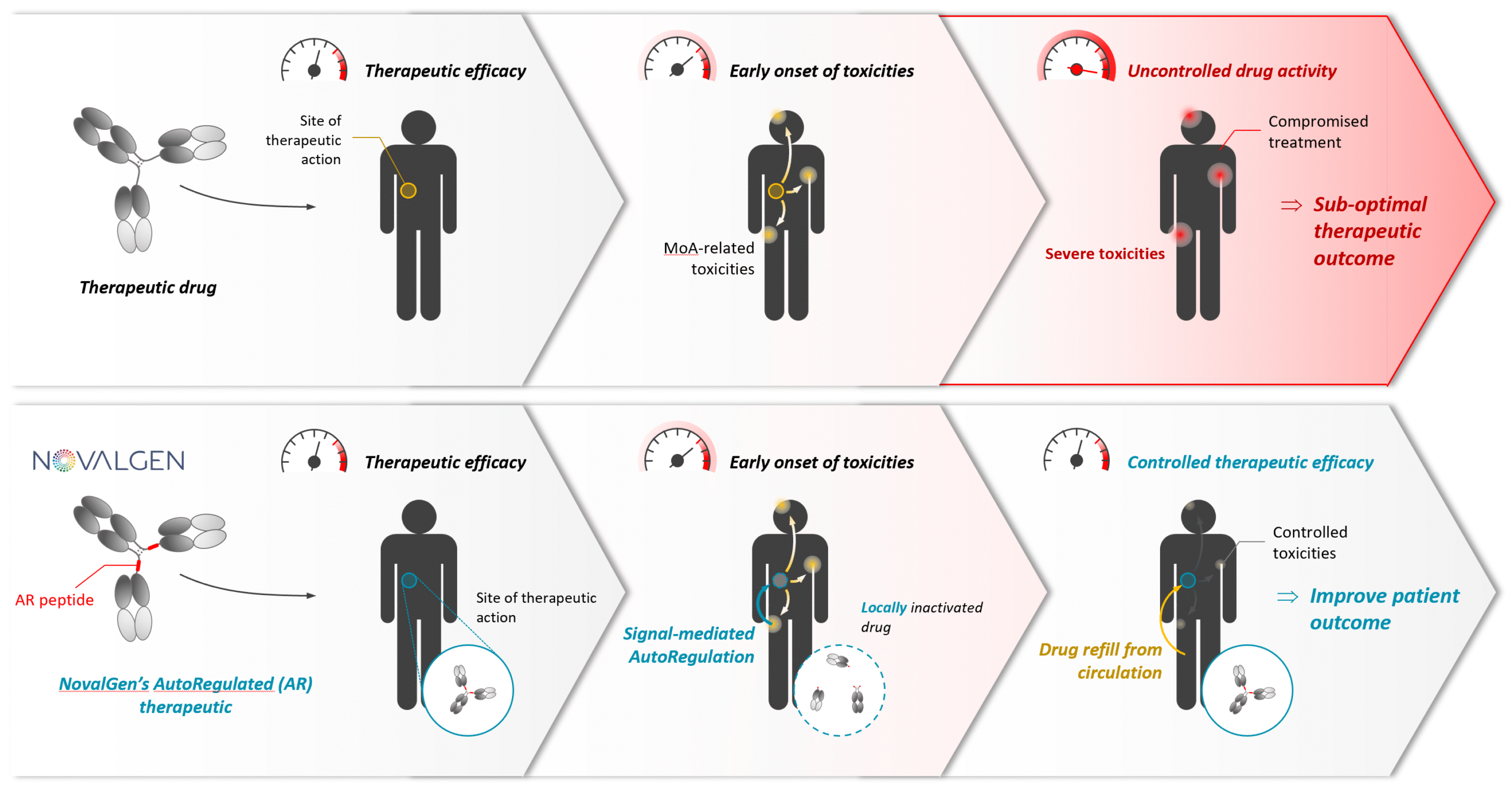
The AR platform technology utilises built-in molecular biosensors that act as a fuse for the drug. The biosensors are sensitive to treatment-related toxicity cues within the disease environment, providing autonomous surveillance and control of therapeutic activity, whilst enhancing efficacy.
The response-mediated trigger of AR will transiently and only locally switch-off therapeutic activity when toxicity signals arise, until the homeostatic balance is restored. This fine-tuned mechanism preserves long-term therapeutic efficacy and improves outcome for patients.
Why is AR important
- Precision drug control : Turns off therapeutic action when toxicity threshold is reached
- Expands the therapeutic index : Maintains the long-term therapeutic efficacy at high doses
- Blend in physiological homeostasis : Mirrors the regulation feedback present in virtually all biological processes
- Widely applicable : The AR platform technology is target, format and indication agnostic

The AR platform is broadly applicable across biologics, including antibodies, protein therapeutics, and cellular therapies. Proof-of-concept has been established across multiple modalities, including bispecific T cell engagers as well as a marketed bispecific antibody for bleeding disorders where implementation of the AR technology improved both safety and efficacy.
Our lead program, NVG-222, will be the first AutoRegulated therapy to enter the clinic. By embedding this groundbreaking technology into T cell engagers, NVG-222 aims to enable higher and more effective dosing, widen the therapeutic window, and support safe community-based treatment.